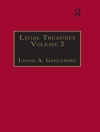Elizabeth Bowen’s The Last September is a poignant and evocative masterpiece that captures the inner register of a tumultuous time. Set against the backdrop of the Irish War of Independence, the novel delves into the lives of the Anglo-Irish gentry as they cling to a way of life on the brink of extinction. At the novel’s center is Lois Farquar, a young woman coming of age in a world of fading traditions and uncertain futures. She navigates the complexities of first love and self-discovery amidst the political upheaval of 1920s Ireland. However, Bowen renders her protagonist not as a romantic heroine, but as a keen observer trapped in a decaying social architecture. The narrative pulses with an extraordinary tension: elegant surface rituals-tennis matches, dances, and drawing room conversations-cannot mask the constant threat of political violence. The turbulent atmosphere permeates the story, even in its most seemingly serene moments, creating a haunting juxtaposition of beauty and unrest. Bowen herself described the novel as an exploration of the Troubles, which were marked by ambushes, arrests, captures and burning, reprisals and counter-reprisals. The Last September is a landmark work that remains as poignant and uncompromising as when it was first published.
Cuprins
Contents
Part One: The Arrival of Mr. and Mrs. Montmorency
Chapter One
Chapter Two
Chapter Three
Chapter Four
Chapter Five
Chapter Six
Chapter Seven
Chapter Eight
Part Two: The Visit of Miss Norton
Chapter One
Chapter Two
Chapter Three
Chapter Four
Chapter Five
Chapter Six
Chapter Seven
Chapter Eight
Part Three: The Departure of Gerald
Chapter One
Chapter Two
Chapter Three
Chapter Four
Chapter Five
Chapter Six
Chapter Seven
Chapter Eight
Biographical Note
Despre autor
Elizabeth Bowen (1899-1973) was an Anglo-Irish novelist and short story writer, renowned for her intricate narratives exploring the lives of the upper-middle class in both Ireland and wartime London. Along with The Last September, her notable works include The Death of the Heart and The Heat of the Day. Bowen’s contributions to literature earned her a CBE in 1948, confirming her legacy as a significant voice in twentieth-century fiction.












